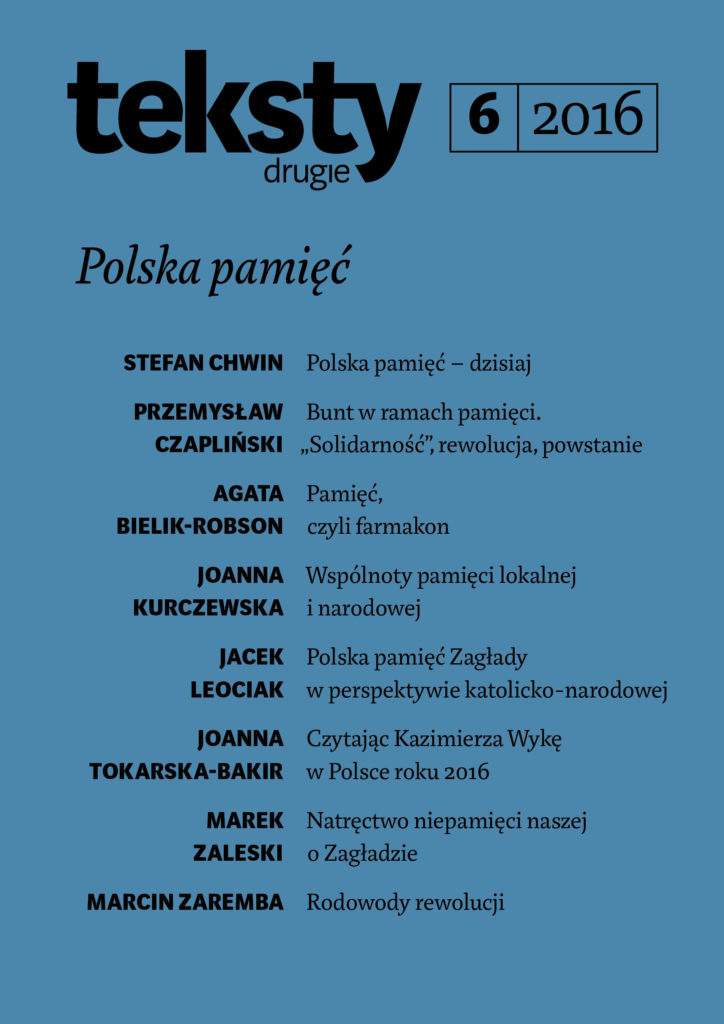(Nie)pamięć zbiorowa Polaków jako skuteczna regulacja emocji
The Poles’ Collective (Im)Memory as Effective Emotion Regulation
Author(s): Michał BilewiczSubject(s): History, Social Sciences, Psychology, Jewish studies, Sociology, Recent History (1900 till today), Special Historiographies:, History of Judaism, Social psychology and group interaction, Nationalism Studies, WW II and following years (1940 - 1949), Fascism, Nazism and WW II, Identity of Collectives
Published by: Instytut Badań Literackich Polskiej Akademii Nauk
Keywords: (im)memory; control of emotions; Jedwabne; attribution
Summary/Abstract: Bilewicz applies notions borrowed from the psychology of emotions to understand collective (im)memory in Poland, with a particular focus on defensive reactions to new historical data on Poles’ negative behaviour. Based on James Gross’ concept of emotion regulation, Bilewicz elaborates a model of downregulating collective moral emotions (such as guilt and shame). He then applies this model to the debate on the Jedwabne pogrom. He also outlines systematic social psychological studies that support his proposed emotion downregulation model. The article concludes with a discussion of alternative ways of presenting negative history – ways that overcome those defensive emotion regulatory processes.
Journal: Teksty Drugie
- Issue Year: 2016
- Issue No: 6
- Page Range: 52-67
- Page Count: 16
- Language: Polish
- Content File-PDF

